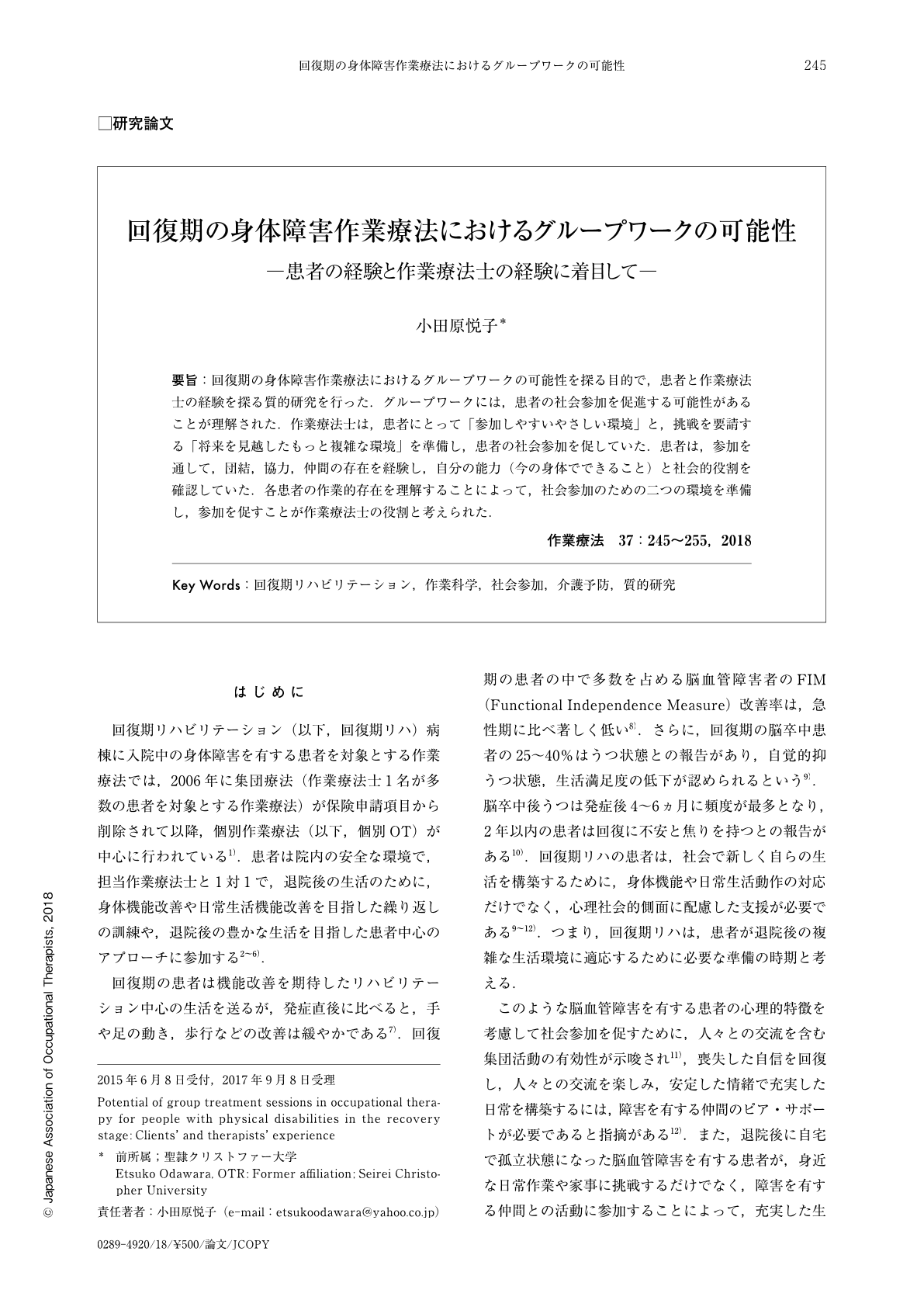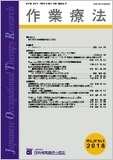Japanese
English
- 販売していません
- Abstract 文献概要
- 1ページ目 Look Inside
- 参考文献 Reference
- サイト内被引用 Cited by
要旨:回復期の身体障害作業療法におけるグループワークの可能性を探る目的で,患者と作業療法士の経験を探る質的研究を行った.グループワークには,患者の社会参加を促進する可能性があることが理解された.作業療法士は,患者にとって「参加しやすいやさしい環境」と,挑戦を要請する「将来を見越したもっと複雑な環境」を準備し,患者の社会参加を促していた.患者は,参加を通して,団結,協力,仲間の存在を経験し,自分の能力(今の身体でできること)と社会的役割を確認していた.各患者の作業的存在を理解することによって,社会参加のための二つの環境を準備し,参加を促すことが作業療法士の役割と考えられた.
In Japan, many stroke survivors in the recovery stage suffer from depression and low life satisfaction. Social participation is very difficult for people with physical disabilities, including stroke survivors. Individual rehabilitation sessions have seen an increase in perceived value. Since 2006, only individual as opposed to group occupational therapy is reimbursable for clients with physical disabilities in the recovery stage. Peer-support among stroke survivors is shown to be effective in enhancing social participation. To investigate the potential of group sessions in occupational therapy for clients with physical disabilities in the recovery stage, qualitative research using participant observations, individual interviews and focus groups was conducted with clients and occupational therapists participating in group sessions. Understanding the experience of clients and occupational therapists led to an awareness of the potential benefits of group therapy in promoting clients' social participation. “Friendly environment” supported participation, while “more complicated environment” were challenging to the clients; both environments prepared clients' for social participation. By participating in group sessions, clients experienced unity, and cooperation with their peers. Participating in group sessions, clients experienced unity with other clients, cooperation with other clients, and peer existence. The clients also recognized their ability with their present body and their new social roles. That experience helped them to be empowered and bridge their past and present which helped them develop their future. To prepare clients for their future social participation, occupational therapists are able to prepare two environments, “friendly environment” and “more complicated environment”, by understanding each client's occupational existence.

Copyright © 2018, Japanese Association of Occupational Therapists. All rights reserved.


